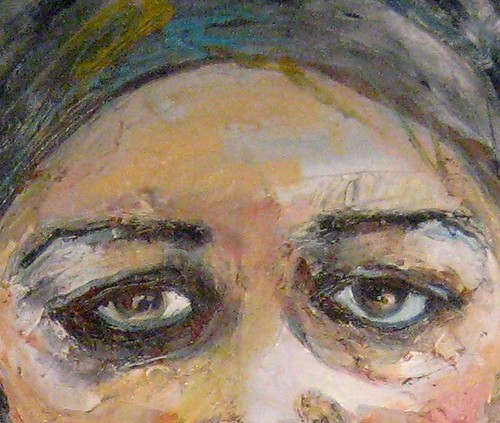
I took offence today and ranted alone in my car for a good half hour. Here is me – stuck in Stevenage traffic, driving a squeaky Fiat Brava and flicking cigarette ash out the window. Here is an extract:
Despite media reports to the contrary, I am here to announce that Britain is NOT broken. Even when race riots swept through our nation in the 80s, or when the IRA bombed our shopping malls, when miners lost their livelihoods, we were not broken. When Germany dropped bombs on us wrecking our homes, when black plague was spread by rats, when a tidal wave killed thousands in the west country –we were not broken. In fact our resilience was beautiful. The British, like other nationalities of human are survivors - resourceful, adaptable. Britain is a diverse and fertile land – full of smart, caring, good people. It is NOT full of Islamic extremists. It is NOT full of neo-nazi fanatics. It’s NOT filled with hoodies or yobbos with ASBOs forcing suicides upon the vulnerable . Nor is it filled with crack heads with knives, nor people without money being denied medicine, nor benefit spongers, nor hit and run killers.
Britain is filled with people like you and me, who are doctors, nurses, office workers, farm labourers, scientists, social workers, refuse collectors, retailers and company directors. People who care for their families, who give to their community, people who are tolerant and compassionate. People who WANT to get along with neighbours, send their kids to school and give a little to the less fortunate. Look around you. British people are among the world’s BIGGEST donators to charity. Be proud of it. And yes even politicians are among us. Believe it or not many politicians are driven with a desire to SERVE their people, not fiddle expenses. A necessity to find adequate representatives of our people does not equate to us being broken. This island nation comes from an extraordinary wealth of ethnic and spiritual background, of culture and belief. Don’t let anyone tell you this incredible nation is broken. Let’s shine a big bright light on all that is good about Britain – if only in the name of balanced perception.
And while we are at it – how do Somali’s feel about being considered “failed”. Or Afghans for that matter.
And how does Iraq feel about being “stabilised”. Would you like to be considered unstable?
And if you are from Africa, do you like the Brits today feel “broken”. I think not. So take offence to those who tell you that you are. And show that you are not.
The human race is better connected than ever before in history. We can tweet around the world, share thoughts with complete strangers, connect to form lobby groups, and vitally we can put pressure on main stream media – because REAL people don’t live in a fabricated world. Real people can now share with you a million versions of the truth – and you can bet that they are not overwhelmingly negative. But main stream media is without doubt negative, and we MUST reject this. If I were to raise my children by telling them every day that they were broken or failed, they might begin to believe it. It’s just not healthy.
At the risk of sounding like an old hippy - Let’s not focus entirely on the minority who bomb us, but cherish the majority who love us and save us.
Nuff said. Rant over.
(picture above was taken in July when thousands of people in my hood "raced for life")





